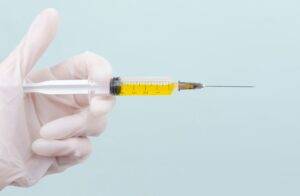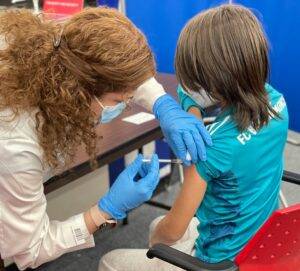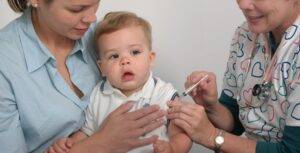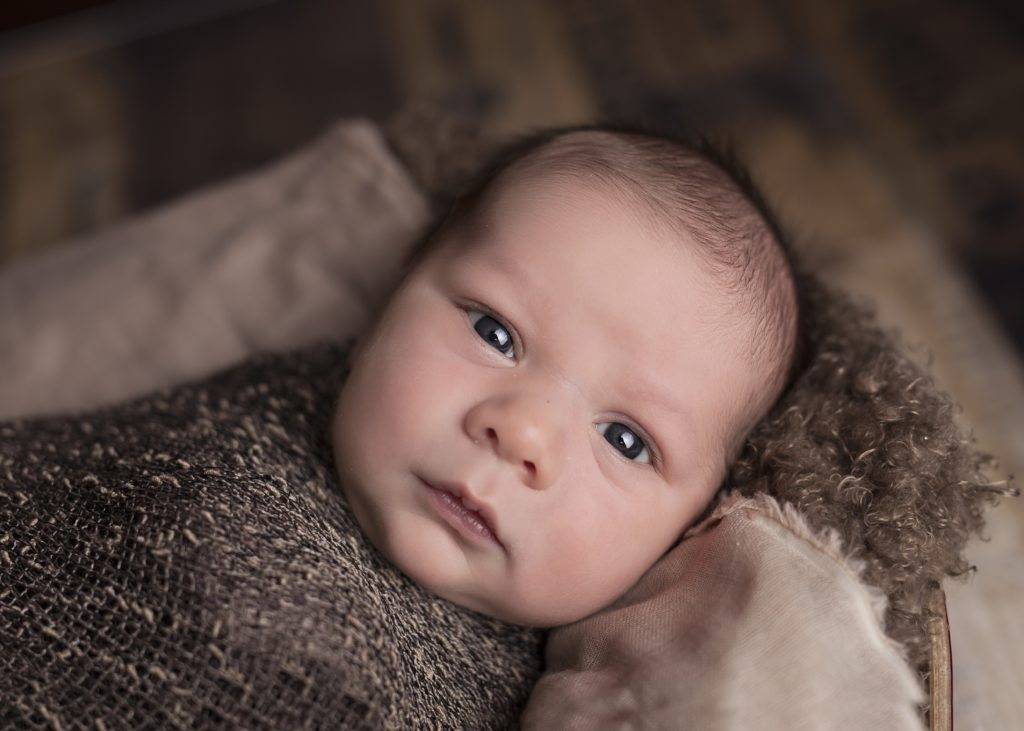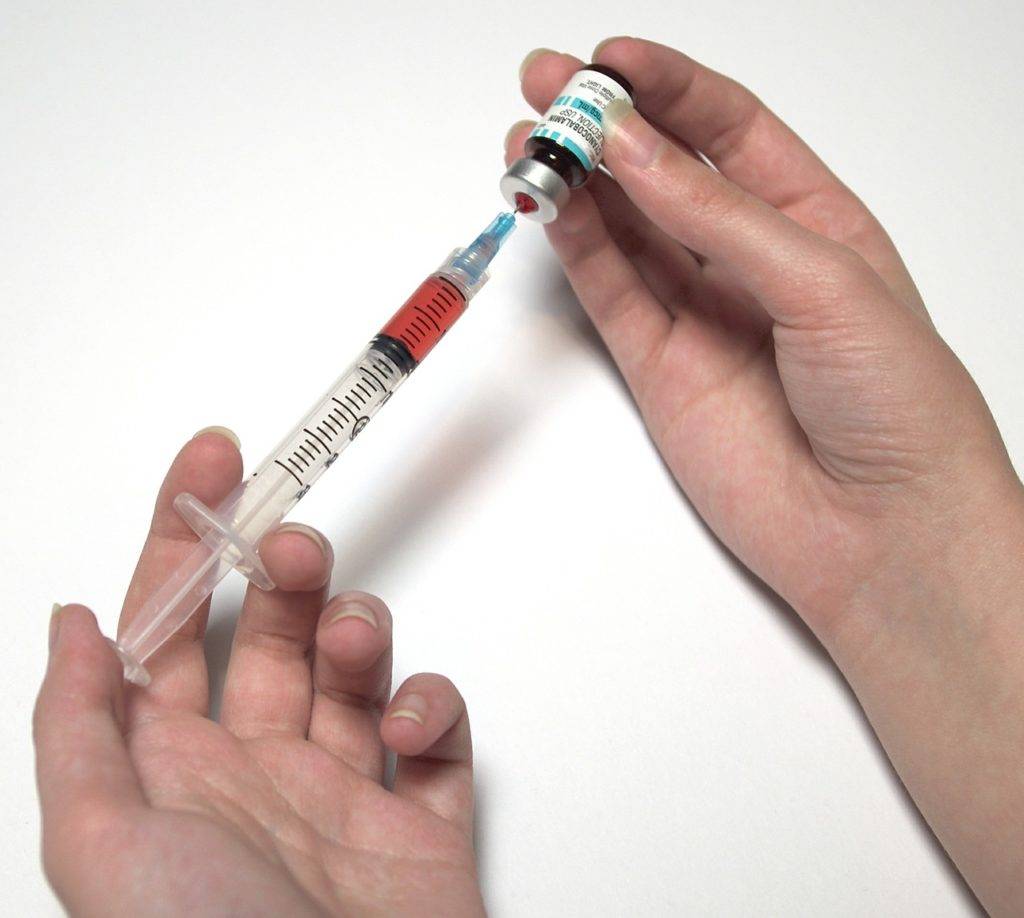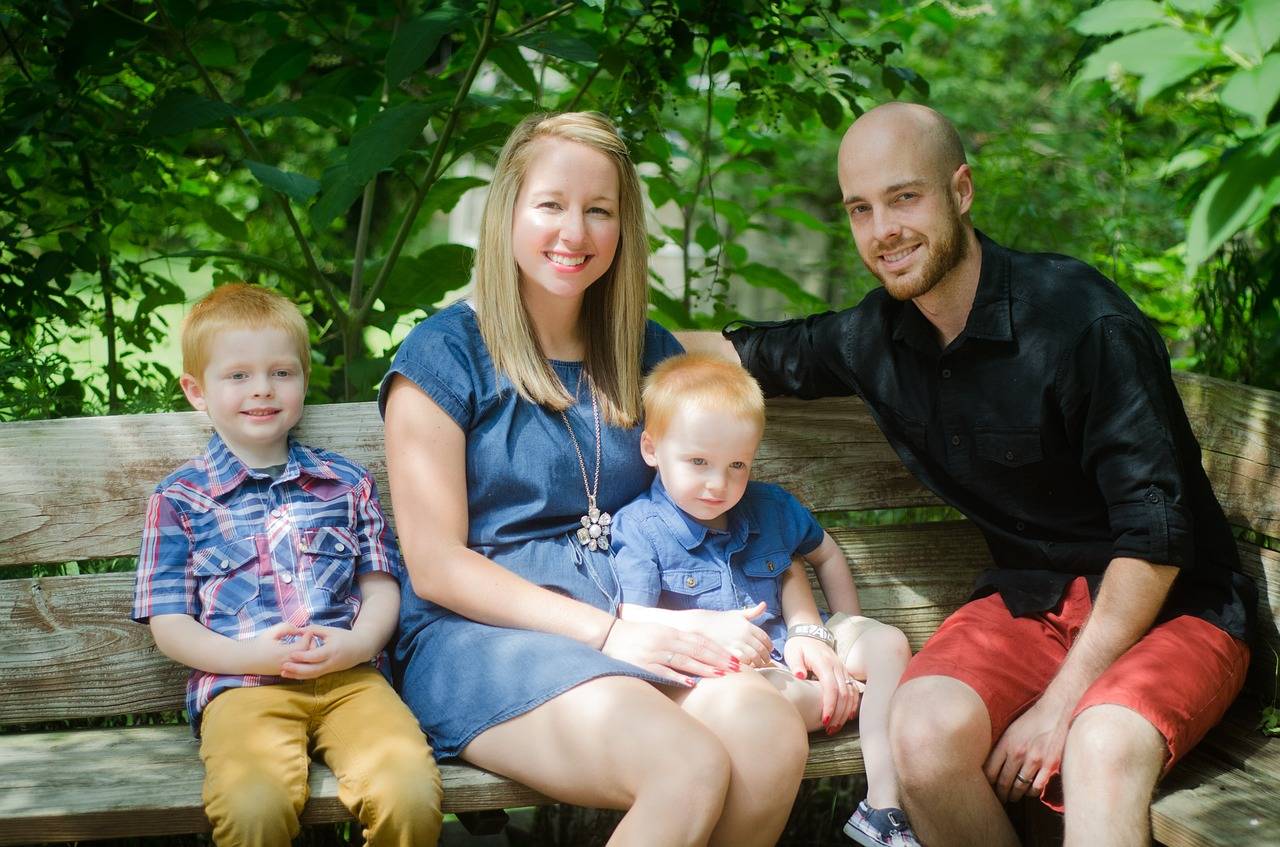Chickenpox, once considered an unavoidable part of childhood, is now preventable. Thanks to the chickenpox vaccine! Introduced in the United States in 1995, this vaccine has transformed families to protect themselves against this common, sometimes severe, viral infection.
Today, to make informed healthcare decisions for your family, it is essential to understand how the chickenpox vaccine works, its benefits, and why it’s recommended for most people. This guide will cover everything parents need to know, including its working mechanisms, who should get it, and its role in creating healthier communities.
Understanding Chickenpox: What Is It and How Does It Spread?
Varicella-zoster is the virus-causing chickenpox, medically referred to as varicella. This virus spreads easily from person to person through airborne respiratory droplets (tiny particles in the air when an infected individual coughs or sneezes) or through direct contact with the fluid in the blisters that chickenpox causes. For most people, chickenpox is associated with a very itchy rash, fever, and other mild symptoms, but in some cases, it can be severe and lead to complications.
Common Symptoms of Chickenpox
- Itchy, red rash: Within a day or two, a telltale red, itchy rash appears on the chest, back, or face and spreads to other body parts. It develops into fluid-filled blisters that eventually crust over. Most children develop 250-500 blisters, which cause significant itching and discomfort.
- Fever: Mild to moderate fever is common, but in severe cases, the fever can be high.
- Body aches and fatigue: There’s a general feeling of being unwell.
- Loss of appetite
These symptoms last about a week, with new spots appearing for several days, making it a prolonged and uncomfortable illness.
Why Prevention Matters
Preventing chickenpox is crucial because it protects the person who gets vaccinated, and also those who may be at higher risk of severe illness. When more people in a community are vaccinated, it reduces the virus’s ability to spread—this is known as “herd immunity.” In essence, by vaccinating one person, we protect many.
Risks and Complications of Chickenpox
Although chickenpox is considered mild, certain groups are at higher risk of serious complications:
- Bacterial infections: Scratching can break open blisters, which allows bacteria to enter the skin and lead to infections.
- Pneumonia: The virus can spread to the lungs, causing potentially life-threatening inflammation.
- Encephalitis: A rare and serious condition that leads to brain inflammation, causing lasting damage or even death.
- Reye’s syndrome: This rare but severe condition can occur if children with chickenpox are given aspirin, resulting in liver and brain damage.
- Hospitalization and death: Though rare, chickenpox can be severe, especially for newborns, pregnant women, and individuals with weakened immune systems.
Because of these risks, the CDC and the American Academy of Pediatrics (AAP) recommend the chickenpox vaccine for children and adults who have not had chickenpox. Vaccination helps reduce the discomfort of the symptoms and the risk of severe outcomes.
The Chickenpox Vaccine: How It Works
The chickenpox vaccine, known as the varicella vaccine, is a live attenuated vaccine, which means it contains a weakened form of the virus. This modified virus is strong enough to stimulate the body’s immune response but not strong enough to cause illness in healthy individuals. Once the vaccine is administered, the immune system produces antibodies—proteins that recognize and fight the chickenpox virus. These antibodies remain in the body, protecting against the virus if it is encountered in the future.
The Immune Response and Long-Term Protection
Once vaccinated, most people develop immunity to chickenpox. While no vaccine guarantees 100% immunity, the varicella vaccine is highly effective.
- One dose: Approximately 78% effective at preventing chickenpox and nearly 100% effective at preventing severe cases.
- Two doses: The second dose, recommended for children, raises efficacy to about 94%.
When a vaccinated person contracts chickenpox, the illness is typically milder, with fewer blisters, less fever, and a quicker recovery time. A partial immunity occurs, while not common, is beneficial because it reduces the intensity and duration of symptoms.
Who Should Receive the Chickenpox Vaccine?
The chickenpox vaccine is generally recommended for anyone over 12 months of age, and those who have not had chickenpox. Here’s a closer look at who should be vaccinated and when:
- Children: The first dose is recommended for children between 12 and 15 months of age. The second dose is recommended between 4 and 6 years old. This second dose boosts immunity and offers greater long-term protection.
- Adolescents and Adults: Adolescents and adults who have never had chickenpox and have not been vaccinated should receive two doses at least four weeks apart. This is particularly important for adults who work in environments where exposure to chickenpox is high, such as healthcare settings, schools, or childcare facilities. Adults who catch chickenpox generally experience more severe symptoms than children, making vaccination an important preventive measure.
Special Cases and Exceptions
Certain groups of individuals should avoid live vaccines, including the chickenpox vaccine. In these special cases, the best approach is to ensure that individuals around them are vaccinated, reducing their risk of exposure. The following groups of individuals should not receive the chickenpox vaccine:

- Pregnant women: Since the vaccine is a live virus, it’s generally not recommended during pregnancy. However, it should be administered before becoming pregnant to protect during pregnancy.
- Individuals with weakened immune systems: Those with compromised immune systems, such as individuals undergoing cancer treatment or those with certain chronic conditions, should consult a doctor about the risks and benefits of the vaccine.
- People who have had an allergic reaction to previous vaccines: This includes people who may be allergic to components of the vaccine, such as gelatin or the antibiotic neomycin.
In cases where individuals cannot safely receive the vaccine, it’s even more important for those around them to be vaccinated. This community-based immunity helps protect the most vulnerable.
Benefits of the Chickenpox Vaccine for Families and Communities
The benefits of the chickenpox vaccine extend well beyond individual immunity. Vaccination protects the vaccinated individual, their family, and the broader community. Here are some key ways the chickenpox vaccine contributes to a healthier environment:
1. Protects Individuals from Severe Complications
While most cases of chickenpox are mild, the disease can be serious, especially for people with weakened immune systems, pregnant women, and newborns. Vaccinated individuals are much less likely to experience severe illness or complications, as the vaccine significantly reduces the severity and likelihood of symptoms.
2. Reduces the Risk of Shingles Later in Life
The varicella-zoster virus stays in the body even after a person recovers from chickenpox. This dormant virus can later reactivate, causing shingles—a painful, blistering rash that leads to long-term nerve pain. Because vaccinated individuals are not exposed to the wild virus, they are less likely to develop shingles, lowering their risk for this painful condition in later life.
3. Supports Community Health Through Herd Immunity
When more people in a community are vaccinated, the spread of chickenpox is significantly reduced. This phenomenon, known as herd immunity, protects vulnerable individuals who cannot receive the vaccine, such as infants and those with certain medical conditions. By vaccinating yourself and your children, you are helping the health of your entire community.
4. Minimizes Missed School and Work Absences
Chickenpox often leads to missed school and work days, as infected children are kept home to recover, and parents may need time off to care for them. Vaccinated children and their families are less likely to face this disruption, making their lives simpler and helping children stay on track with school.
5. Provides a Safe and Tested Form of Protection
The chickenpox vaccine has been in use for nearly three decades and has undergone extensive testing and monitoring for safety. Serious side effects are rare, making it a trusted choice for families looking to prevent illness without exposing themselves to unnecessary risk.
Common Concerns About the Chickenpox Vaccine
Understanding what to expect from the chickenpox vaccine helps ease concerns. Here are some frequently asked questions parents have about this vaccine:
Can the Vaccine Cause Chickenpox?
Because the vaccine contains a weakened version of the virus, it cannot cause full-blown chickenpox in healthy individuals. In rare cases, some people develop a mild rash with a few spots, but this is far less severe than chickenpox and generally resolves.
Are There Common Side Effects?
Most side effects of the chickenpox vaccine are mild and temporary, including soreness or redness at the injection site, mild fever, and small rashes around the injection area. These side effects typically resolve within a few days. Severe reactions, such as allergic reactions, are rare, but monitor for symptoms like a high fever, swelling of the face, or trouble breathing after vaccination and seek medical attention if needed.
How Long Does Immunity Last?
Research suggests that immunity from the chickenpox vaccine is long-lasting, with most people protected for many years after vaccination. The two-dose schedule for children offers long-term protection, and booster shots are generally not required.
Can Vaccinated People Still Get Chickenpox?
In rare cases, vaccinated individuals may still get chickenpox, but their illness is typically milder, with fewer blisters and a low fever. This partial immunity, known as “breakthrough infection,” is much less severe than chickenpox in unvaccinated individuals.
Is the Vaccine Effective for All Ages?
Yes, the chickenpox vaccine is effective for children and adults. For those who missed getting vaccinated as children, it’s never too late to catch up. Adults who work in high-exposure environments or who live with people at higher risk of severe chickenpox should consider getting vaccinated if they have not had the disease or the vaccine.
Do People Need a Booster Shot?
Booster shots of the chickenpox vaccine are not required. The two-dose schedule for children has been shown to offer long-lasting protection. However, research is ongoing to monitor how immunity holds up over time.
Is the Vaccine Safe During Pregnancy?
The chickenpox vaccine is not recommended during pregnancy. Women planning a pregnancy should receive the vaccine at least one month before trying to conceive if they haven’t had chickenpox or the vaccine previously. This timing helps protect the mother and her future baby from the risks of chickenpox during pregnancy.
Addressing Myths About the Chickenpox Vaccine
Despite the benefits, some myths about the chickenpox vaccine continue to circulate. Here’s the truth behind some of the most common misconceptions:
Myth 1: Chickenpox is Mild, so the Vaccine Is Not Necessary
While chickenpox is mild for most children, complications do occur, especially in high-risk groups. The vaccine not only helps prevent the discomfort of chickenpox but also protects against more severe outcomes like pneumonia or brain inflammation.
Myth 2: The Vaccine Causes Chickenpox
The varicella vaccine contains a weakened form of the virus that does not cause full-blown chickenpox in healthy individuals. In rare cases, a vaccinated individual develops a mild rash, much less severe than a natural infection.
Myth 3: You Only Need One Dose
While one dose does offer protection, a two-dose schedule significantly increases the vaccine’s effectiveness. Following the recommended two-dose schedule ensures the best protection for children.
Myth 4: Natural Immunity Is Better
While recovering from chickenpox provides immunity, this immunity comes with risks—especially for those who face severe illness. The vaccine provides immunity without exposing the individual to these risks.
Schedule the Chickenpox Vaccine for Your Family
Vaccination remains one of the safest and most effective ways to protect your family from preventable diseases like chickenpox. By following the recommended vaccine schedule, you’re taking an important step to keep your children and family members healthy and safe.
For additional insights on childhood vaccinations and preventive healthcare, explore Omegapediatrics’ resources on vaccine-preventable diseases and the health benefits of vaccines for children. These resources offer expert guidance to help families make informed healthcare choices for their children.
- 5 Benefits of Timely Immunizations: Why Staying on Schedule Matters
- Can the Chickenpox Vaccine be Given Along With Other Vaccines? Discover the Safety and Benefits of Concurrent Immunization
Vaccinating against chickenpox is about more than just preventing an itchy rash—it’s a commitment to health, safety, and community well-being. Embrace the chance to protect your family, prevent the spread of illness, and contribute to a healthier future for everyone.


